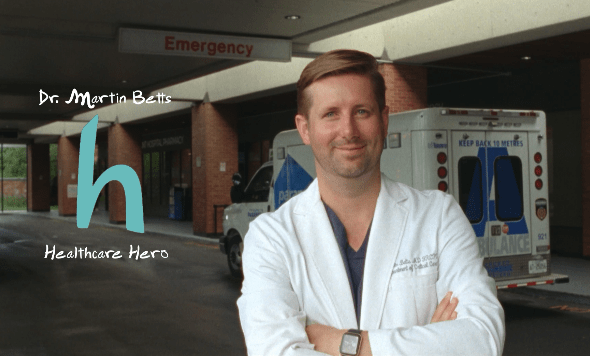
Throughout the COVID-19 pandemic, Dr. Betts and his team were on the frontlines, caring for the sickest patients in our ICUs. This month, we sat down with him to talk about the impact of the pandemic on our already disadvantaged Scarborough hospitals.
1. You were on the frontlines during the entire COVID-19 pandemic. What was it like treating critical patients during such a challenging time?
It was quite a different experience for us. The critical care program started caring for the first COVID-19 patient on March 15, 2020, and we’ve had at least 1 COVID patient in our ICUs since then – over a year and a half – and 80% of our patients have had COVID at one point across SHN’s ICUs.
When the pandemic began, we were all trying to understand what this illness truly was and the best methods to treat those in critical condition. We had some idea from the SARS epidemic 18 years ago and other similar coronavirus strains we’ve seen before. However, from a treatment perspective, we were virtually in the dark.
We spent many of these past 18 months learning how to treat patients best and evolving strategies month by month to understand and improve our outcomes. Now, we’re still learning about the new variants and how best to treat our patients coming in with these new strains.
The other main concern at the start of the pandemic was protecting ourselves as health care providers. There was a limited supply of personal protective equipment (PPE) and no understanding of what measures we needed to take to protect ourselves and our patients in the hospital.
Physicians and other health care staff across the hospitals went home to their families each night – sleeping in the basement not to expose our families and showering six times a day to protect them.
Finally, being in the ICU was challenging because strict restrictions on visitors significantly changed our approach to care for patients. Most of our ICU patients are so ill that they can’t communicate with us, and we rely heavily on their relatives, friends and family to understand the patient’s wishes on their treatment. We’re used to doing this in person, and before COVID-19, we would allow visitors 24/7 into the ICU to support the patient.
We provided updates daily to family members virtually, knowing they were scared and trying to guide them through their loved one’s illness. Not only is this extremely hard for the patient and their family, but it takes a toll on our staff as well.
2. While you and our health care heroes fought COVID-19, our community stepped up with donations of PPE, meals and cash donations. What did this mean to you and your colleagues?
It meant the world. Initially, the lack of PPE was a massive concern so it meant so much to know our community was behind us with donations to acquire PPE and donating the PPE itself. We even had things like surgical caps donated that were hand-sewn by the community, and when we were all wearing them with the same pattern, it united us as a team.
We were incredibly grateful for the meals that were donated. Most of our ICU physicians and nurses worked 36 hours then at home for 12 hours, for months on end, and there’s no time to even think about going to a grocery store. To have hot meals ready for us at the hospital or to take home was incredible.
Knowing that we were all afraid of what was to come and scared for our community made us feel supported. We can’t thank everyone enough.
3. What’s the most rewarding thing about being a critical care physician? And the most challenging?
The most rewarding thing is knowing that you’re there for patients when they have the most significant illness of their life. Everything we deal with in the ICU is life-threatening, so there are no assurances or easy cases. To me, that’s the most rewarding thing.
In particular, it’s how we provide the care that drives me. I work with a fantastic team to coordinate the care for our critical patients – we work with surgeons, nurses, respiratory therapists, social workers, physiotherapists, and so many other talented people to ensure our patients have the best care to get past their illness.
The most challenging thing is that you always have to be “on” – we can’t have a bad day because everything we treat is life-threatening. Any misstep we make could have fatal consequences, so we have to be focused every single day. There’s a lot of pressure, but luckily we have a great team that relies on each other and supports each other to do what’s best for the patient.
4. SHN has been a leader in delivering vaccines in the GTA, recently surpassing 550,000 doses. What would you say to encourage those who are still hesitant to get vaccinated?
As a critical care physician, I see the worst of every illness. I don’t see routine appendicitis or routine pneumonia – or routine COVID-19 cases. I’m conscious of this fact when counselling patients about the vaccine because I see the worst outcomes of this virus.
We know that the vaccine is unbelievably successful in terms of what they’re trying to do. They limit transmissions, which means getting vaccinated is not just a decision for yourself but helps protect your community, family and everyone you interact with.
I encourage people to keep in mind that we will be living with this pandemic for a long time – it’s far from over. Some people can’t protect themselves with the vaccine, whether they’re too young or have medical conditions that limit vaccination.
In the ICU, we are not seeing people who are fully vaccinated – we’re seeing those who aren’t vaccinated coming in with life-threatening COVID-19.
We now have close to a year of safety data showing the effectiveness of the vaccine. We also know that the frequency and intensity of any side effects are minimal compared to actually getting COVID-19. If people have questions or concerns, we have incredible resources to help them make an informed decision.
You can visit SHN.ca/VaxFacts for more information or book an appointment to speak to a physician about the vaccine.
5. You’ve been with SHN for over eight years. What does SHN mean to you, particularly the donors who help us better serve our community?
It’s been great to see the way the organization has come together as three hospital sites. We’ve become the hub of health care for all of Scarborough, which allows us to plan around our growing community and reach further.
I love that Scarborough has such a community and family focus. During non-COVID times, if you come into the ICU on the weekend, the waiting room is packed like no other place I’ve worked. We see aunts, uncles, cousins, friends and religious leaders coming to visit our patients, which is so crucial for them – and for us – to know they’re supported.
We know that community members in Scarborough don’t access health care services the same as other communities in Ontario. So to have donor support to build programs to better care for our community is excellent.
Before the pandemic, we received a generous donation that allowed us to expand the critical care space. Without this expansion, we wouldn’t have gotten through COVID-19. We know that the Foundation plays such a vital role in the functioning of the hospital and making sure we’re prepared to care for our community long into the future.
All of us at the Foundation are extremely grateful to Dr. Betts and the entire SHN team for their continued determination and passion to keep our community safe.
To donate to SHN Foundation, visit SHNFoundation.ca/Donate. You can also read a touching opinion piece by Dr. Betts in Toronto Life here.
